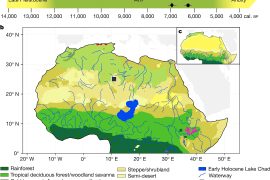
Vegetables may not protect against cardiovascular disease
Eating enough vegetables is important for maintaining a balanced diet and avoiding a wide range of diseases. Until recently, scientists have assumed that a diet rich in vegetables significantly lowers the risk of cardiovascular disease (CVD).
However, a new study led by the University of Oxford, the Chinese University of Hong Kong, and the University of Bristol found no strong evidence for this, and argued that a variety of confounding factors, such as socio-economic status, physical activity, and other dietary factors might have explained previous spurious, positive correlations between vegetable intake and lower risk of CVD.
To reach this conclusion, the researchers used the large UK Biobank, which follows the health of half a million adults in the UK by linking to their healthcare records. Upon their enrollment between 2006 and 2010, the participants were asked about their lifestyle, diet, medical and reproductive history, and other factors. In the new study, scientists used this data to investigate the connection between vegetable consumption and risk of hospitalization or death from myocardial infarction, stroke, and other major CVD.
“The UK Biobank is a large-scale prospective study on how genetics and environment contribute to the development of the most common and life-threatening diseases. Here we make use of the UK Biobank’s large sample size, long-term follow-up, and detailed information on social and lifestyle factors, to assess reliably the association of vegetable intake with the risk of subsequent CVD,” explained study co-author Naomi Allen, a chief scientist at the UK Biobank.
Although the data analysis suggested that the risk of dying from cardiovascular disease was about 15 percent lower for participants with the highest vegetable intake compared to those with the lowest, this apparent effect was substantially weakened (by over 80 percent) when other socio-economic, nutritional, and health- and medicine-related confounding factors were taken into account.
“Our large study did not find evidence for a protective effect of vegetable intake on the occurrence of CVD. Instead, our analyses show that the seemingly protective effect of vegetable intake against CVD risk is very likely to be accounted for by bias from residual confounding factors, related to differences in socioeconomic situation and lifestyle,” said study lead author Dr. Qi Feng, an epidemiologist at the University of Oxford.
Further research is needed to assess whether particular types of vegetables or their method of preparation might affect the risk of CVD. However, even if vegetable intake does not directly affect CVD, it remains important for a balanced diet that could reduce the risk of other major diseases, including some forms of cancer. Consuming at least five portions of fruits and vegetables per day can significantly contribute to better health.
The study is published in the journal Frontiers in Nutrition.
—
By Andrei Ionescu, Earth.com Staff Writer













